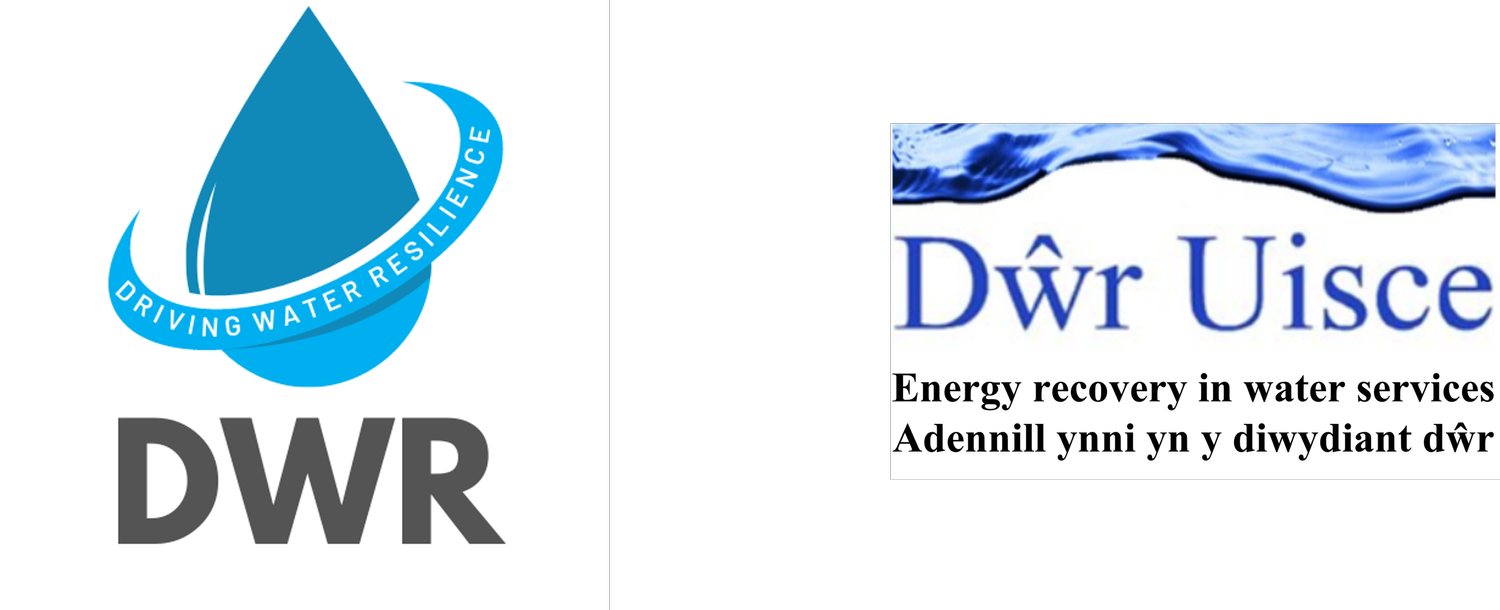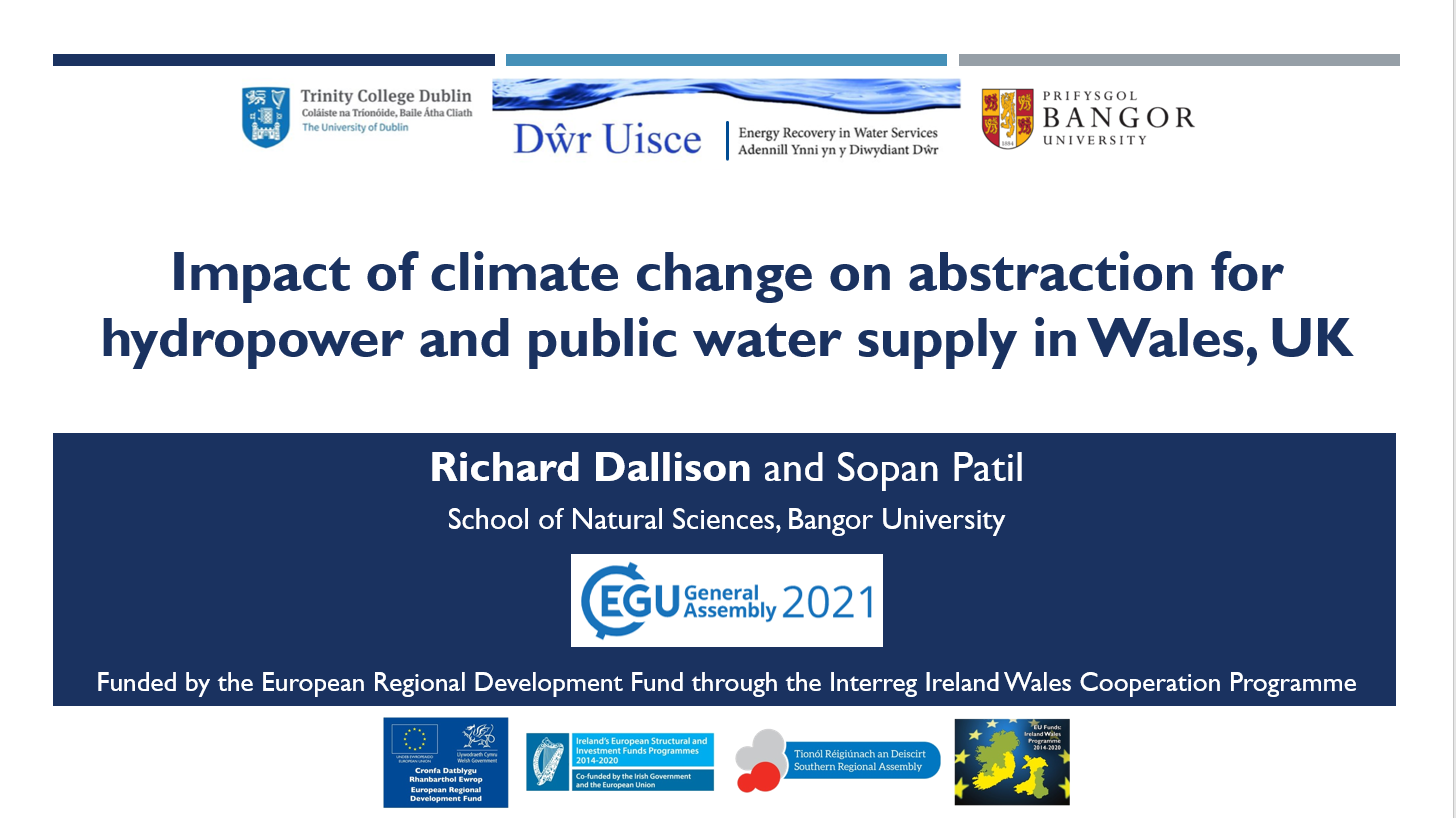Richard, a postdoctoral researcher in our Bangor team, has been attending the European Geosciences Union’s (EGU) 2021 General Assembly this week, as well as presenting and discussing his work. Usually held in Vienna, this year’s conference is being conducted online due to the ongoing global pandemic, providing a fantastic opportunity to disseminate Dŵr Uisce research to a wide global audience. Indeed, the event is one of the largest gatherings of geosciences related researchers in Europe, with the EGU having over 20,000 members.
Whilst participating in the conference, Richard has attended many sessions from various EGU divisions such as hydrological sciences, climate (past, present and future), and energy resources and the environment. The work presented here has been highly interesting, and has furthered Richard’s knowledge, research scope, and contacts, all of which will bring great benefit to his Dŵr Uisce research. In addition, new avenues of research have been explored, and ideas generated for future work and new methods.
Richard also presented his latest research which explores the impact of climate change on water abstraction for the purposes of public water supply and hydroelectric power in Wales. As with all contributions at this year’s assembly, Richard’s took the form of a vPICO (virtual Presentation of Interactive COntent), consisting a two-minute live presentation of a single slide, followed by a breakout room, allowing in-depth discussions of the work. This was a highly valuable experience, allowing for both the engagement of a broad audience and detailed discussions and conversations on the research, methods, and implications. In addition, a 15-minute pre-recorded presentation of the research has been available throughout the conference to EGU members, and will be accessible until the 30th May, allowing for even greater interaction with and comment on the research.
This has been a highly valuable opportunity for Richard and the Dŵr Uisce project, allowing access to some of the leading researchers in the field, enabling comment and opinions on the presented work and future plans. Thanks must go to the organisers of the General Assembly, as well as the funders of the Dŵr Uisce project, the European Regional Development Fund through Interreg Ireland-Wales Cooperation Programme.


